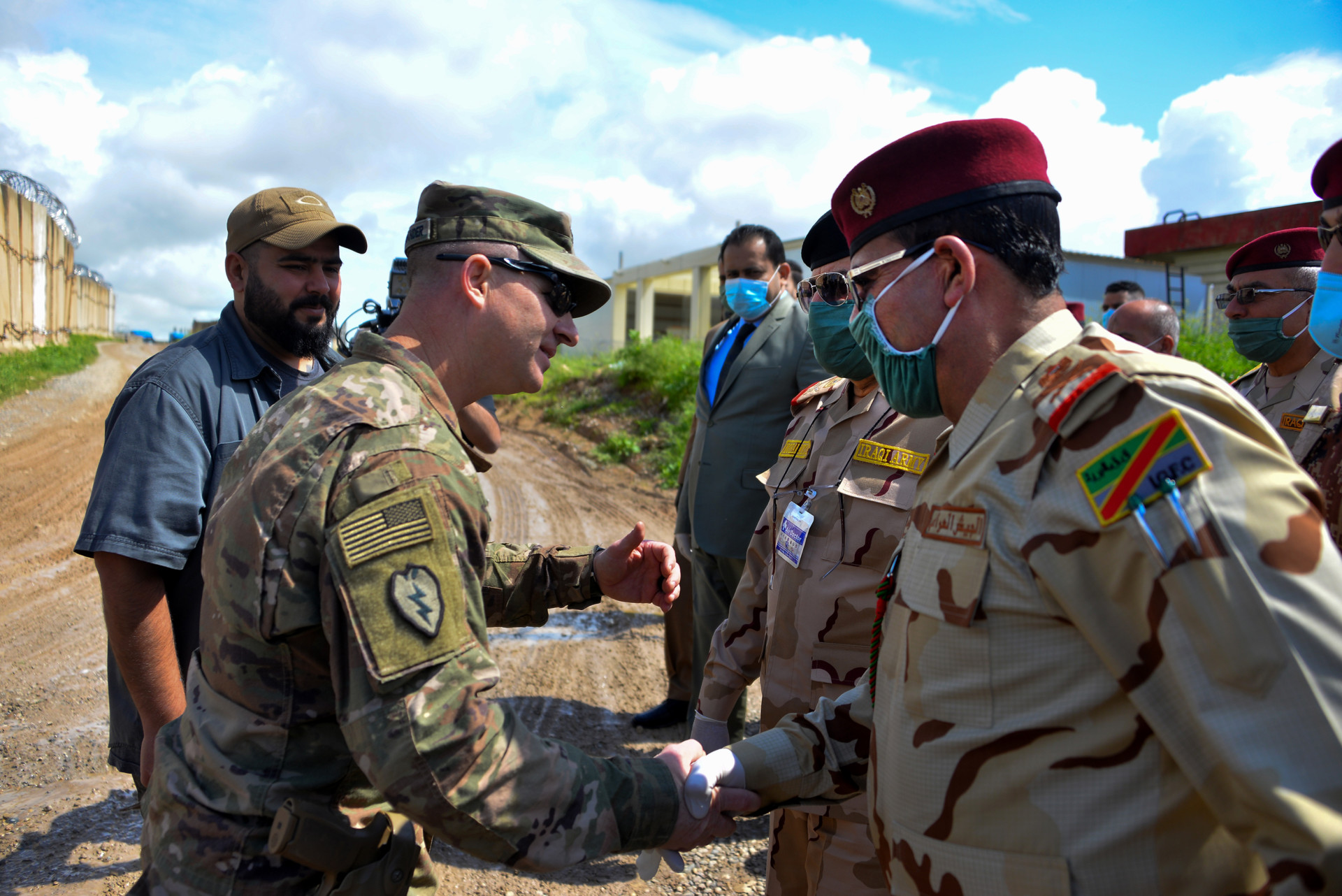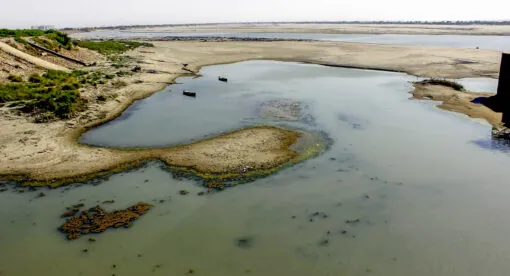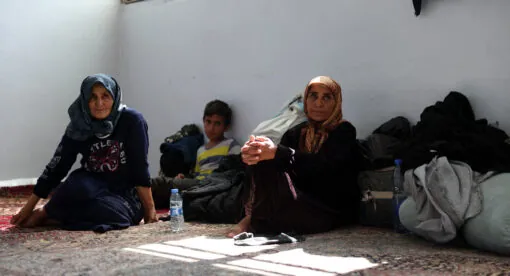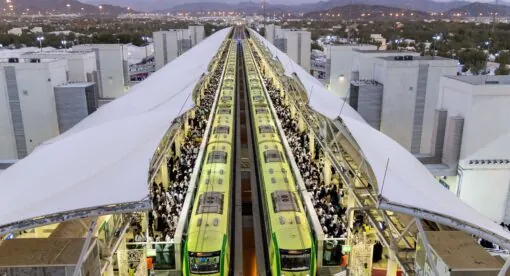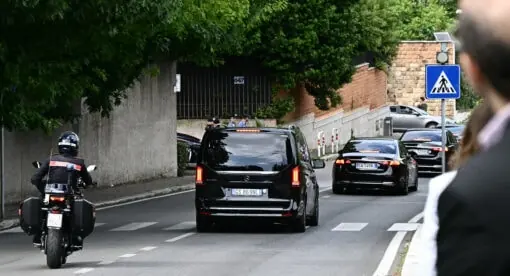Tensions between Shiite militias loyal to Iran and U.S.-led coalition forces have been high since the Jan. 3 U.S. airstrike that killed the commander of Iran’s Quds Force, Gen. Qassem Soleimani. Two days after Soleimani’s death, the Iraqi Parliament passed a non-binding resolution to expel the coalition forces and end their combat and logistical support missions (though only 170 of 329 Iraqi lawmakers voted). Iran will continue to use proxies to try and drive U.S. forces from the country in what is likely to be a prolonged escalation campaign. The Iranians have deeply penetrated the Iraqi nation and state, but not to the point where the Iraqis will distance themselves from the Americans.
One Objective, Different Tactics
Despite Tehran’s influence in Iraq, broad support for the United States’ role in the struggling country undermined the Iranian strategy to end the U.S. presence there. Senior Iraqi and U.S. leaders reached this conclusion in private assessments of the security and military challenges facing Iraq. Amid economic struggles, constant attacks and now the coronavirus outbreak, Iraq did not have the luxury of simply ridding itself of the U.S. presence. The United States advises, trains, and equips Iraqi counterterrorism forces, rapid response forces, and special tactical regiments in the Iraqi army. It also directly provides intelligence, communications, monitoring, targeting, artillery, and air support, along with grants that exceed $5 billion. The U.S.-led presence encourages investor confidence, reassures neighboring states, boosts Iraq’s access to international aid and grants from the World Bank, and helps preserve its territorial integrity.
The United States is also a major check on Iran, the single strongest regional actor exerting influence on Iraq. Tehran acts in Iraq through the state and Iranian non-state actors, such as Shiite militias operating under the Popular Mobilization Forces (PMF) banner.
The Iraqi factions that Iran controls directly have long opposed U.S. forces’ presence on Iraqi soil. Their escalation after the killing of Soleimani was a continuation of an earlier one that was interrupted by the popular protests in October. The protests distracted the PMF from continuing a push to end the presence of the U.S. troops and, for weeks, they had become ambiguous — neither against nor for the U.S. presence. In fact, the events in October and January exposed a new division within the Shiite groups, according to statements from several of its commanders as well as experts close to the PMF and its individual factions.
Iran’s Iraq-based militia proxies fall into two camps. The first uses legal and political means to resist the U.S. presence, and notably includes the Asaib Ahl al-Haq, Badr Organization, and other groups whose military presence is limited to Iraq. This camp draws its salaries from the government budget. Many of its members are oriented toward parochial security challenges viewed through a domestic security prism. This camp’s membership is about 60% Shia, 28% Sunnis, and 22% other minorities.
The second camp is dominated by doctrinal Shiite factions that share Iran’s ideology and answer directly to its leadership and ultimately to Supreme Leader Ayatollah Ali Khamenei. This camp believes in exporting Iran’s Islamic Revolution through the “Axis of Resistance.” These transnational militant elements lead more than 40 percent of the PMF’s offices, divisions, and directorates, especially those dealing with finance, security, intelligence, general staff, media, development, and military manufacturing. They often side with Iran in disagreements with the general PMF leadership.
The latter camp has, since December, carried out a campaign of violence against U.S. forces in Iraq, although none of its members have claimed responsibility for these operations. This camp includes Kataib Hezbollah, Harakat Hezbollah al-Nujaba, and Kataib Sayyid al-Shuhada – some of which have deployed fighters in support of Iranian proxy operations elsewhere in the region. The anti-U.S. factions are spearheading an asymmetric campaign against the U.S. forces in Iraq that continues to escalate and complicate the central government’s efforts to balance between U.S. and Iranian influence.
On Dec. 27, 2019, the more hard line pro-Iranian militia actors targeted the U.S. forces section at the K1 Base northwest of Kirkuk. The United States accused Kataib Hezbollah of carrying out the attack and attacked two PMF brigades that belong to the group. Pro-Iranian Iraqi Shiite elements attempted to break into the U.S. Embassy in Baghdad. This was part of a series of Iranian escalations that eventually prompted the U.S. strike that killed Soleimani and the deputy head of the PMF, Abu Mahdi al-Muhandis.
This year, pro-Iranian Iraqi militiamen launched 25 attacks on U.S. military and civilian interests. The most severe attacks, on Taji Base, killed one British and two U.S. nationals. U.S. forces responded with airstrikes against weapons depots belonging to a Kataib Hezbollah brigade, killing four Iraqi soldiers and one civilian.
The Impact of the Attacks on the U.S. and Iraq
The campaign seems to have had an effect. On March 19, the U.S.-led coalition and the Iraqi Joint Operations Command announced the handover of the sections of Iraqi bases and camps assigned to the international military forces to the Iraqi side: first al-Qaim Camp west of Anbar, then al-Qayyarah Camp south of Ninewa, followed by K1 Camp northwest of Kirkuk and Ninewa Operations Command Camp.
The coalition published statements characterizing the withdrawal and handover as repositioning after the conclusion of Inherent Resolve Campaign missions and containing the spread of the coronavirus. According to a senior source in the Iraqi Joint Command, Baghdad and the anti-ISIS international coalition had agreed about the departure from these bases several months ago, and not because of the recent rocket attacks. That said, the continuing military escalation is converging with the spread of the coronavirus. As a result, troops from the United States and other coalition member states stopped their training and advisory missions and instituted a plan to return to their countries. This departure is meant to be temporary until the threat of the coronavirus subsides or training missions can be resumed. However, it is possible they will not return even if the Iraqi government makes such a request.
The recent assaults on U.S. interests very likely shaped the subsequent decision to redeploy forces in Iraq, especially since all these joint bases lacked bunkers or advanced ground and air defense systems. The decision to leave them may well be based on protecting coalition forces from attacks after the Soleimani killing. More vital bases, including Ain al-Asad, Balad, al-Habbaniyah, Baghdad Airport, and Taji, have been equipped with advanced Patriot air defense systems and coalition forces have not withdrawn from them. After all, the importance of the international coalition lies not in the quantity of its troops and resources but in the vital combat role it plays.
The cells that fired Katyusha rockets on coalition forces call themselves Asaib al-Thairun (Vengeance Brigades). They operate with the blessings of Kataib Hezbollah, Harakat Hezbollah al-Nujaba, and Kataib Sayyid al-Shuhada. Baghdad has promised to pursue them, but the government lacks the political will to make risky strategic decisions and is especially wary of provoking intra-Shiite fighting. It is also well aware that the Vengeance Brigade attacks enjoy the support of major political factions.
The Outlook for Iraq
The U.S.-Iranian escalation, despite Iran’s arguably superior strategic position in Iraq, is not likely to drive out coalition troops. In fact, the deteriorated conditions in Iraq’s health institutions combined with the coronavirus pandemic will likely highlight for Baghdad how important the international forces are for preserving peace and stability in Iraq, especially as it struggles with a recent escalation of ISIS attacks.
The pandemic in particular is creating new demands for the Iraqi government from the poorest segments in society in terms of economic and health needs. The spread of the coronavirus is further straining Iraq’s health sector and putting pressure on PMF forces. The national government is calling in PMF members to help impose the curfew and other emergency guidelines, while individual PMF fighters feel the need to support their families, who are suffering from the pandemic and cannot access healthcare. Socially traditional Iraqis are refusing to stop holding social practices, including visiting the ill and holding large funerary services, and are even threatening to use force against the Iraqi government if it tries to impose any kind of emergency health measures. The increasing complaints about deaths among the poorer segments of society could also increase economically-motivated crimes. Indeed, there are indications of an increase in kidnappings for ransom.
The increasingly strained Iraqi government does not welcome the Iranian-U.S. escalation. The United States has no interest in broadening the conflict with all Shiite forces, especially those that are part of the Iraqi government and enjoy wide support in some areas. Iraq’s fragmentation, including within Shiite politics, which has so often made it amenable to Iranian influence, is likely to hinder rather than help an Iranian campaign to oust coalition forces.
Dr. Husham al-Hashimi was a Nonresident Fellow with the Newlines Institute. Dr. al-Hashimi was a leading security expert focusing on Islamist movements who advised the U.S.-led coalition to defeat the Islamic State. Al-Hashimi was also a member of the Iraq Advisory Council, a group of experts based in Iraq. He Tweeted at @hushamalhashimi.
The views expressed in this article are those of the author and not an official policy or position of the Newlines Institute.

